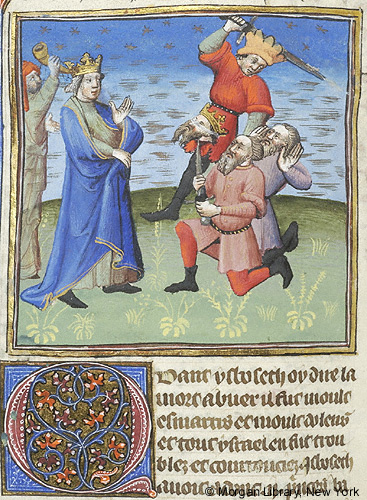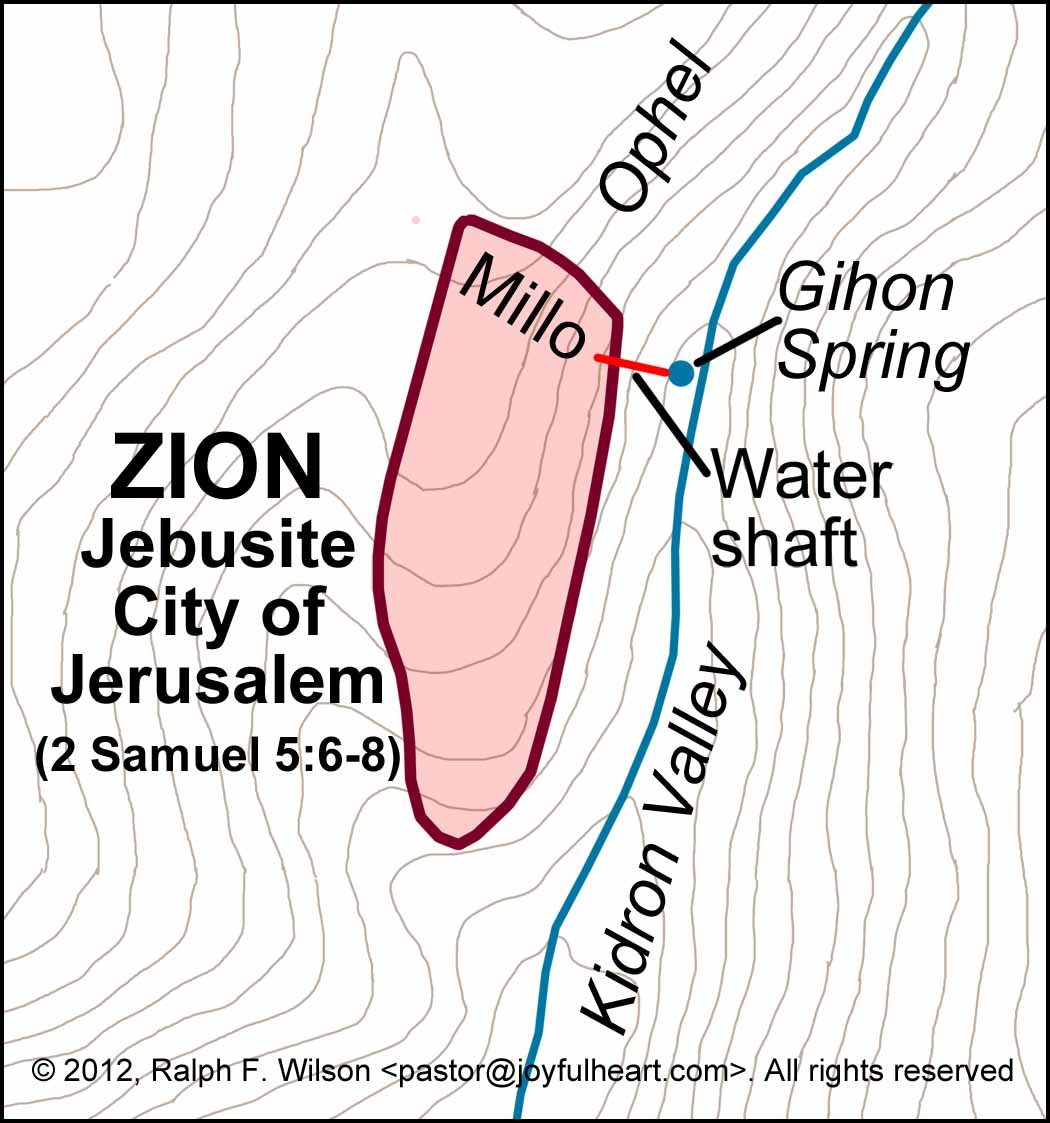The Sligo Presbyterian Church Wednesday Morning Bible Study is continuing its study of the Old Testament by looking at how God led David from watching a flock to leading a nation. Below is an outline for the series.
- Session 1 - 1 Samuel 1:1–4:1
- Session 2 - 1 Samuel 4:2–7:17
- Session 3 - 1 Samuel 8:1–10:27
- Session 4 - 1 Samuel 11:1–12:25
- Session 5 - 1 Samuel 13:1–15:35
- Session 6 - 1 Samuel 16:1–17:58
- Session 7 - 1 Samuel 18:1–20:42
- Session 8 - 1 Samuel 21:1–23:29
- Session 9 - 1 Samuel 24:1–26:25
- Session 10 - 1 Samuel 27:1–29:11
- Session 11 - 1 Samuel 30:1–31:13
- Session 12 - 2 Samuel 1:1–3:21
- Session 13 - 2 Samuel 3:22–5:10
- Session 14 - 2 Samuel 5:11–8:18
- Session 15 - 2 Samuel 9:1–11:27
- Session 16 - 2 Samuel 12:1–14:33
- Session 17 - 2 Samuel 15:1–18:8
- Session 18 - 2 Samuel 18:9–20:26
- Session 19 - 2 Samuel 21:1–24:25
During our thirteenth session, we discussed David establishing his kingship, 2 Samuel 3:22–5:10. Below is a recording of our discussion and the text from 2 Samuel.
2 Samuel 3:22–5:10
Just then the servants of David arrived with Joab from a raid, bringing much spoil with them. But Abner was not with David at Hebron, for David had dismissed him, and he had gone away in peace. When Joab and all the army that was with him came, it was told Joab, “Abner son of Ner came to the king, and he has dismissed him, and he has gone away in peace.” Then Joab went to the king and said, “What have you done? Abner came to you; why did you dismiss him, so that he got away? You know that Abner son of Ner came to deceive you, and to learn your comings and goings and to learn all that you are doing.” When Joab came out from David’s presence, he sent messengers after Abner, and they brought him back from the cistern of Sirah; but David did not know about it. When Abner returned to Hebron, Joab took him aside in the gateway to speak with him privately, and there he stabbed him in the stomach. So he died for shedding the blood of Asahel, Joab’s brother. Afterward, when David heard of it, he said, “I and my kingdom are forever guiltless before the Lord for the blood of Abner son of Ner. May the guilt fall on the head of Joab, and on all his father’s house; and may the house of Joab never be without one who has a discharge, or who is leprous, or who holds a spindle, or who falls by the sword, or who lacks food!” So Joab and his brother Abishai murdered Abner because he had killed their brother Asahel in the battle at Gibeon. Then David said to Joab and to all the people who were with him, “Tear your clothes, and put on sackcloth, and mourn over Abner.” And King David followed the bier. They buried Abner at Hebron. The king lifted up his voice and wept at the grave of Abner, and all the people wept. The king lamented for Abner, saying, “Should Abner die as a fool dies? Your hands were not bound, your feet were not fettered; as one falls before the wicked you have fallen.” And all the people wept over him again. Then all the people came to persuade David to eat something while it was still day; but David swore, saying, “So may God do to me, and more, if I taste bread or anything else before the sun goes down!” All the people took notice of it, and it pleased them; just as everything the king did pleased all the people. So all the people and all Israel understood that day that the king had no part in the killing of Abner son of Ner. And the king said to his servants, “Do you not know that a prince and a great man has fallen this day in Israel? Today I am powerless, even though anointed king; these men, the sons of Zeruiah, are too violent for me. The Lord pay back the one who does wickedly in accordance with his wickedness!”
When Saul’s son Ishbaal heard that Abner had died at Hebron, his courage failed, and all Israel was dismayed. Saul’s son had two captains of raiding bands; the name of the one was Baanah, and the name of the other Rechab. They were sons of Rimmon a Benjaminite from Beeroth—for Beeroth is considered to belong to Benjamin. (Now the people of Beeroth had fled to Gittaim and are there as resident aliens to this day). Saul’s son Jonathan had a son who was crippled in his feet. He was five years old when the news about Saul and Jonathan came from Jezreel. His nurse picked him up and fled; and, in her haste to flee, it happened that he fell and became lame. His name was Mephibosheth. Now the sons of Rimmon the Beerothite, Rechab and Baanah, set out, and about the heat of the day they came to the house of Ishbaal, while he was taking his noonday rest. They came inside the house as though to take wheat, and they struck him in the stomach; then Rechab and his brother Baanah escaped. Now they had come into the house while he was lying on his couch in his bedchamber; they attacked him, killed him, and beheaded him. Then they took his head and traveled by way of the Arabah all night long. They brought the head of Ishbaal to David at Hebron and said to the king, “Here is the head of Ishbaal, son of Saul, your enemy, who sought your life; the Lord has avenged my lord the king this day on Saul and on his offspring.”
David answered Rechab and his brother Baanah, the sons of Rimmon the Beerothite, “As the Lord lives, who has redeemed my life out of every adversity, when the one who told me, ‘See, Saul is dead,’ thought he was bringing good news, I seized him and killed him at Ziklag—this was the reward I gave him for his news. How much more then, when wicked men have killed a righteous man on his bed in his own house! And now shall I not require his blood at your hand, and destroy you from the earth?” So David commanded the young men, and they killed them; they cut off their hands and feet, and hung their bodies beside the pool at Hebron. But the head of Ishbaal they took and buried in the tomb of Abner at Hebron.
Then all the tribes of Israel came to David at Hebron, and said, “Look, we are your bone and flesh. For some time, while Saul was king over us, it was you who led out Israel and brought it in. The Lord said to you: It is you who shall be shepherd of my people Israel, you who shall be ruler over Israel.” So all the elders of Israel came to the king at Hebron; and King David made a covenant with them at Hebron before the Lord, and they anointed David king over Israel. David was thirty years old when he began to reign, and he reigned forty years. At Hebron he reigned over Judah seven years and six months; and at Jerusalem he reigned over all Israel and Judah thirty-three years.
The king and his men marched to Jerusalem against the Jebusites, the inhabitants of the land, who said to David, “You will not come in here, even the blind and the lame will turn you back” —thinking, “David cannot come in here.” Nevertheless David took the stronghold of Zion, which is now the city of David. David had said on that day, “Whoever would strike down the Jebusites, let him get up the water shaft to attack the lame and the blind, those whom David hates.” Therefore it is said, “The blind and the lame shall not come into the house.” David occupied the stronghold, and named it the city of David. David built the city all around from the Millo inwards. And David became greater and greater, for the Lord, the God of hosts, was with him.
.jpg)




No comments:
Post a Comment